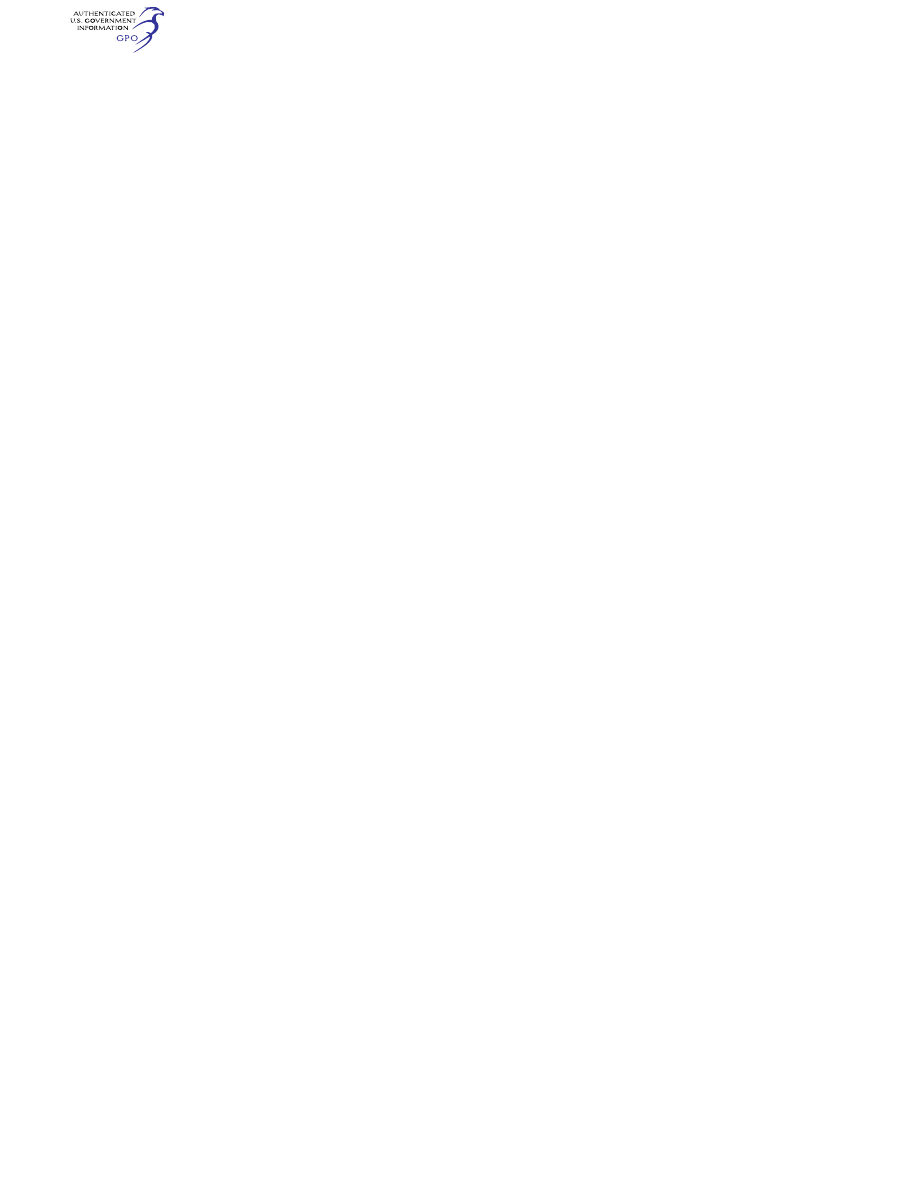
672
14 CFR Ch. I (1–1–24 Edition)
§ 29.1509
§ 29.1509
Rotor speed.
(a)
Maximum power-off (autorotation).
The maximum power-off rotor speed
must be established so that it does not
exceed 95 percent of the lesser of—
(1) The maximum design r.p.m. deter-
mined under § 29.309(b); and
(2) The maximum r.p.m. shown dur-
ing the type tests.
(b)
Minimum power-off. The minimum
power-off rotor speed must be estab-
lished so that it is not less than 105
percent of the greater of—
(1) The minimum shown during the
type tests; and
(2) The minimum determined by de-
sign substantiation.
(c)
Minimum power-on. The minimum
power-on rotor speed must be estab-
lished so that it is—
(1) Not less than the greater of—
(i) The minimum shown during the
type tests; and
(ii) The minimum determined by de-
sign substantiation; and
(2) Not more than a value determined
under § 29.33 (a)(1) and (c)(1).
§ 29.1517
Limiting height-velocity en-
velope.
For Category A rotorcraft, if a range
of heights exists at any speed, includ-
ing zero, within which it is not possible
to make a safe landing following power
failure, the range of heights and its
variation with forward speed must be
established, together with any other
pertinent information, such as the kind
of landing surface.
[Amdt. 29–21, 48 FR 4391, Jan. 31, 1983, as
amended by Amdt. 29–59, 88 FR 8739, Feb. 10,
2023]
§ 29.1519
Weight and center of gravity.
The weight and center of gravity lim-
itations determined under §§ 29.25 and
29.27, respectively, must be established
as operating limitations.
§ 29.1521
Powerplant limitations.
(a)
General. The powerplant limita-
tions prescribed in this section must be
established so that they do not exceed
the corresponding limits for which the
engines are type certificated.
(b)
Takeoff operation. The powerplant
takeoff operation must be limited by—
(1) The maximum rotational speed,
which may not be greater than—
(i) The maximum value determined
by the rotor design; or
(ii) The maximum value shown dur-
ing the type tests;
(2) The maximum allowable manifold
pressure (for reciprocating engines);
(3) The maximum allowable turbine
inlet or turbine outlet gas temperature
(for turbine engines);
(4) The maximum allowable power or
torque for each engine, considering the
power input limitations of the trans-
mission with all engines operating;
(5) The maximum allowable power or
torque for each engine considering the
power input limitations of the trans-
mission with one engine inoperative;
(6) The time limit for the use of the
power corresponding to the limitations
established in paragraphs (b)(1)
through (5) of this section; and
(7) If the time limit established in
paragraph (b)(6) of this section exceeds
2 minutes—
(i) The maximum allowable cylinder
head or coolant outlet temperature (for
reciprocating engines); and
(ii) The maximum allowable engine
and transmission oil temperatures.
(c)
Continuous operation. The contin-
uous operation must be limited by—
(1) The maximum rotational speed,
which may not be greater than—
(i) The maximum value determined
by the rotor design; or
(ii) The maximum value shown dur-
ing the type tests;
(2) The minimum rotational speed
shown under the rotor speed require-
ments in § 29.1509(c).
(3) The maximum allowable manifold
pressure (for reciprocating engines);
(4) The maximum allowable turbine
inlet or turbine outlet gas temperature
(for turbine engines);
(5) The maximum allowable power or
torque for each engine, considering the
power input limitations of the trans-
mission with all engines operating;
(6) The maximum allowable power or
torque for each engine, considering the
power input limitations of the trans-
mission with one engine inoperative;
and
(7) The maximum allowable tempera-
tures for—
VerDate Sep<11>2014
09:06 Jun 28, 2024
Jkt 262046
PO 00000
Frm 00682
Fmt 8010
Sfmt 8010
Y:\SGML\262046.XXX
262046
jspears on DSK121TN23PROD with CFR